Uli Hoeneß has addressed long-standing claims that he and Karl-Heinz Rummenigge interfere in FC Bayern’s day-to-day operations, insisting that perception is inaccurate. He suggested he could step back once the club functions exactly as envisioned, while acknowledging that their view might not always be right. The remarks reignited debate around Bayern’s governance model and the balance between executive oversight and sporting autonomy. Fan reactions were sharply divided, ranging from calls for renewal to appreciation for the stability Hoeneß has historically provided. The discussion underscores a pivotal moment as Bayern shapes its future leadership and strategic direction.
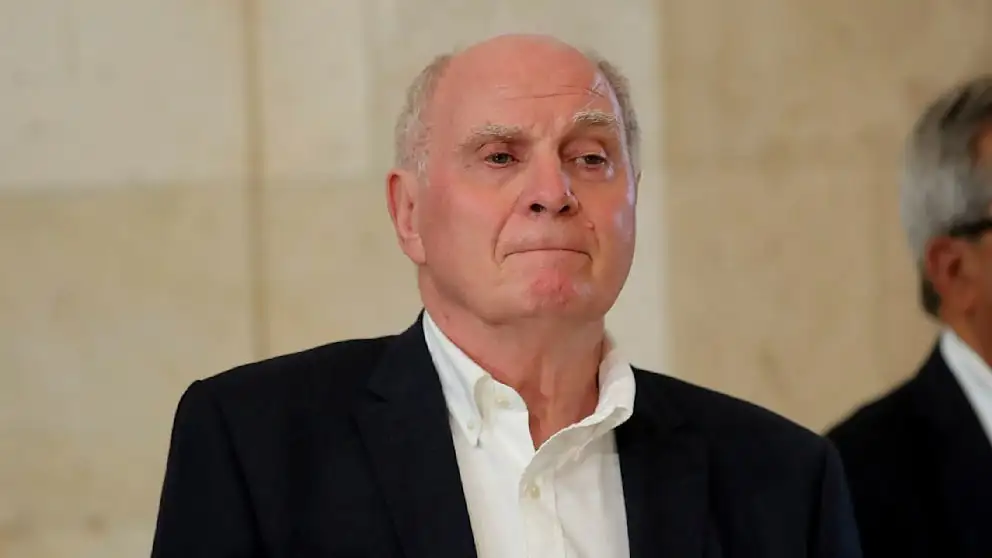
During a recent media exchange in Munich, Uli Hoeneß, Bayern’s honorary president and long-time power broker, discussed his role and the wider leadership structure at the club. He rejected the notion of ongoing interference in sporting decisions and indicated he would consider stepping back when internal processes align with the leadership’s blueprint. The comments arrive amid continued public scrutiny of Bayern’s executive influence and questions about succession planning at the top, a recurring theme in the post-treble era as the club balances tradition, competitiveness, and modern governance standards.
Uli Hoeneß on potentially stepping down from his role at Bayern: "It's always said that Rummenigge and Hoeneß are always interfering. That's not true at all. The moment we feel like FC Bayern is running the way we imagine it… maybe that's also wrong, I don't know. But I can't
@iMiaSanMia
Impact Analysis
Hoeneß’s remarks land at the intersection of legacy and modernity, and their impact could be far-reaching. First, they bring corporate governance into sharp focus. Bayern’s hybrid model—deeply rooted in institutional memory but increasingly pressured by the demands of elite European competition—requires clarity of roles. A publicly signaled willingness to step back, contingent on the club “running as imagined,” suggests a potential path to a cleaner operating model: executives set frameworks; sporting leadership executes without second-guessing.
Second, the transfer and recruitment apparatus could benefit. When power centers are perceived as overlapping, agents and directors hedge, slowing decision cycles. By reinforcing the principle of autonomy for the sporting department, Bayern could accelerate squad planning, contract renewals, and youth integration. This is crucial in an era of inflating fees and tightening margins.
Third, brand equity is at stake. Bayern’s global appeal thrives on stability and competitive excellence. Signals of a planned transition—rather than abrupt exits—can reassure sponsors and supporters that stewardship remains responsible. However, ambiguity (“maybe that’s also wrong”) invites fresh scrutiny: if internal visions are contested, any dip in results will be read as proof of governance friction.
In sum, if Hoeneß converts intent into structure—codified responsibilities, succession timelines, and non-interference protocols—Bayern could gain agility without losing identity. If not, every sporting decision risks being reframed through the lens of executive overreach, a narrative that can erode trust on and off the pitch.
Reaction
Social sentiment is polarized and emotionally charged. A loud faction demands immediate renewal, invoking age-related jibes and frustrations about perceived control from the boardroom. Some comments cite Hoeneß’s past legal troubles to argue, harshly, that his influence should end, while others deploy profanity to press for retirement. This strand paints the club’s current dynamics as stale, attributing on-field inconsistencies to executive interference and calling for a clean break.
On the other side, a sizable cohort stresses gratitude, pointing to decades of trophies, financial strength, and cultural cohesion. They argue that Hoeneß’s institutional knowledge has repeatedly stabilized Bayern in turbulent cycles and caution against discarding experience for optics. A middle-ground view also emerges: respect the legacy but lock in a transition plan, with safeguards against any perception of meddling in coaching or recruitment decisions.
Notably, the discourse reflects broader anxieties about modern football governance: trust in sporting directors, transparency over decision chains, and the need for clear accountability. While the loudest posts are critical, there is meaningful support for a structured, phased step-back—one that honors Hoeneß’s contribution without leaving a power vacuum. The overall takeaway: fans want clarity, not drama, and they want it soon.
Social reactions
You’ll probably fall down the mountain knowing how you’re built
Has Vincent Kompany won a big game? (@kingsley_goat)
Please enjoy Tegernsee
RICHY ت (@RICHY094053671)
fckin leave #Hoeneßraus
#UliOUT (@Dionblo)
Prediction
Short term (next 3–6 months): Expect a concerted communication push from Bayern—board briefings, supervisory statements, and calibrated interviews—to assert that sporting autonomy is intact. Internally, decision matrices are likely to be formalized, delineating who signs off on transfers, academy promotions, and coaching appointments. The goal: reduce perception gaps without destabilizing the dressing room.
Medium term (6–12 months): A phased transition scenario becomes probable. Hoeneß could reduce day-to-day visibility while a designated successor within the supervisory structure or a strengthened sporting CEO model takes more front-facing accountability. Any marquee renewal or signature signing would be presented as the output of a streamlined process—symbolic proof that interference narratives are outdated.
Long term (12+ months): Either the transition is institutionalized—codified non-interference protocols, published governance charters, and a predictable chain of command—or the narrative resets if results wobble. In the former, Bayern gains agility in recruitment and a clearer identity under a modernized hierarchy. In the latter, pressure will mount for a definitive step-back date to end the debate. The deciding variables: sporting results, dressing-room harmony, and the success of a trusted sporting leadership figure able to own decisions publicly.
Latest today
- Jordan Mainoo spotted at Old Trafford as Kobbie thrives in high-tempo Manchester United ni...
- Halftime Flashpoint: Iraola's Plan vs Man United Sparks Fierce Debate on Credit and Tactic...
- Man United vs Bournemouth VAR debate: Why the Dalot incident was not a red card
- Kai Havertz targets December return - rival view: optimism looks premature
Conclusion
Uli Hoeneß’s message is both a defense and a roadmap. By rejecting the “interference” label yet signaling openness to step aside when the club runs to plan, he places accountability on structure rather than personality. That is the right battleground. If Bayern enshrines role clarity—where strategy is set at the top and execution belongs to the sporting department—the club can preserve its invaluable legacy while unlocking the speed demanded by modern football.
The fans’ split reaction underscores what is at stake: trust. Transparent processes, visible empowerment of sporting leadership, and a disciplined public posture will matter as much as results. Bayern has thrived when continuity and courage align; it can do so again by converting sentiment into systems. Whether Hoeneß steps back sooner or later, the enduring test will be how convincingly Bayern demonstrates that its competitive edge is built on governance as robust as its sporting ambition.







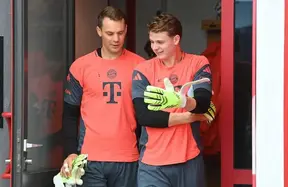
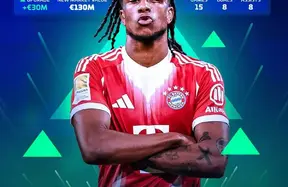
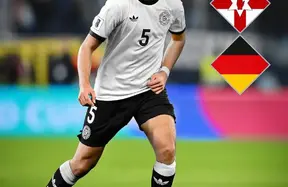
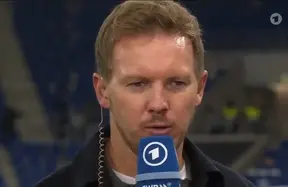
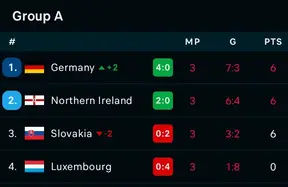
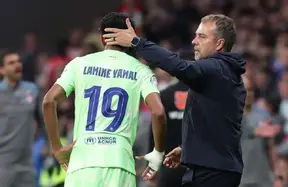
Has Vincent Kompany won a big game?
You’ll probably fall down the mountain knowing how you’re built
RICHY ت
Please enjoy Tegernsee
#UliOUT
fckin leave #Hoeneßraus
Mr. Jupp
“running the way we imagine” Hoeneß runs be like: Renewing Sanass contract Selling Mazraoui for political biases Fumbling Wirtz deal after 10 years of working on it
𓆣 パトリック𓆣
#uliraus
Chief
Here the dumbass non-members thinking there opinions matter 😂
Ozkiisstillnotdead007
SOMEBODY SHOW GRANDPA OUR TWEETS
Porto Tonic
It's in Uli's will to announce that he's stepping down at his funeral...
Ehab ®
Then just go
Marvie
Tbh bayern fans are tired of this man already
🇩🇪 FCBayernUnsereLiebe🇺🇲
Says "that's not true," then proceeds to say he'll stop interfering when he's happy with how the club is being run. Okay.
B.L.A.N.K.S
Uli We don’t like what you’re doing anymore.
Alex
Go 🤝
Hanser Zuber
Been 10 years and old man doesn't want to get it. He is just ''scapegoating'' himself.
Sarki Shehu
Idiots in the comment section thinking their bitch ass opinions matter. None of yall has served the club even 1 percent of what this man has done. So shut the fuck up.. yall voices ain't relevant
bejiiii 🔴🇹🇳
Chris
BASED ULI he keep rage baiting us fairs
Alban Vitija
With Wirtz’s family! Bro don’t be a villan
😼 #HoeneßOut
Fuck off
Mateuszek
im telling you
JEckert
Of course it’s not true, he’s made yourself so “important” that the club needs his ok for everything 🙄
Radikaler
Just go back to Tegernsee, grandpa
محمد معشي
👍👍👍
BixLiza
Nah dude. I don't trust what you say. Just go back to prison and I might reconsider.
Wohit
Everyone has been telling you but you refuse to read the room old man
Vulkahn
Yes, please go.
mr
Who have you been asking, Uli?
Fernando Castro #VincentKINGpany
We don't like what you're doing anymore There. Now fuck off to your mountain
your friendly neighnourhood degenerate
Just retire grandpa we all love you
Ardi 🇦🇱
We been telling you
Bayern & Germany
🔝🇩🇪 Jamal Musiala is now the outright most valuable German player after Florian Wirtz got a downgrade in the latest market value update []
More Crypto Online
Waiting for a bull run like waiting for Half-Life 3.
Aviator
Something big is coming this weekend for $AVI. Notifications ON. 🔔